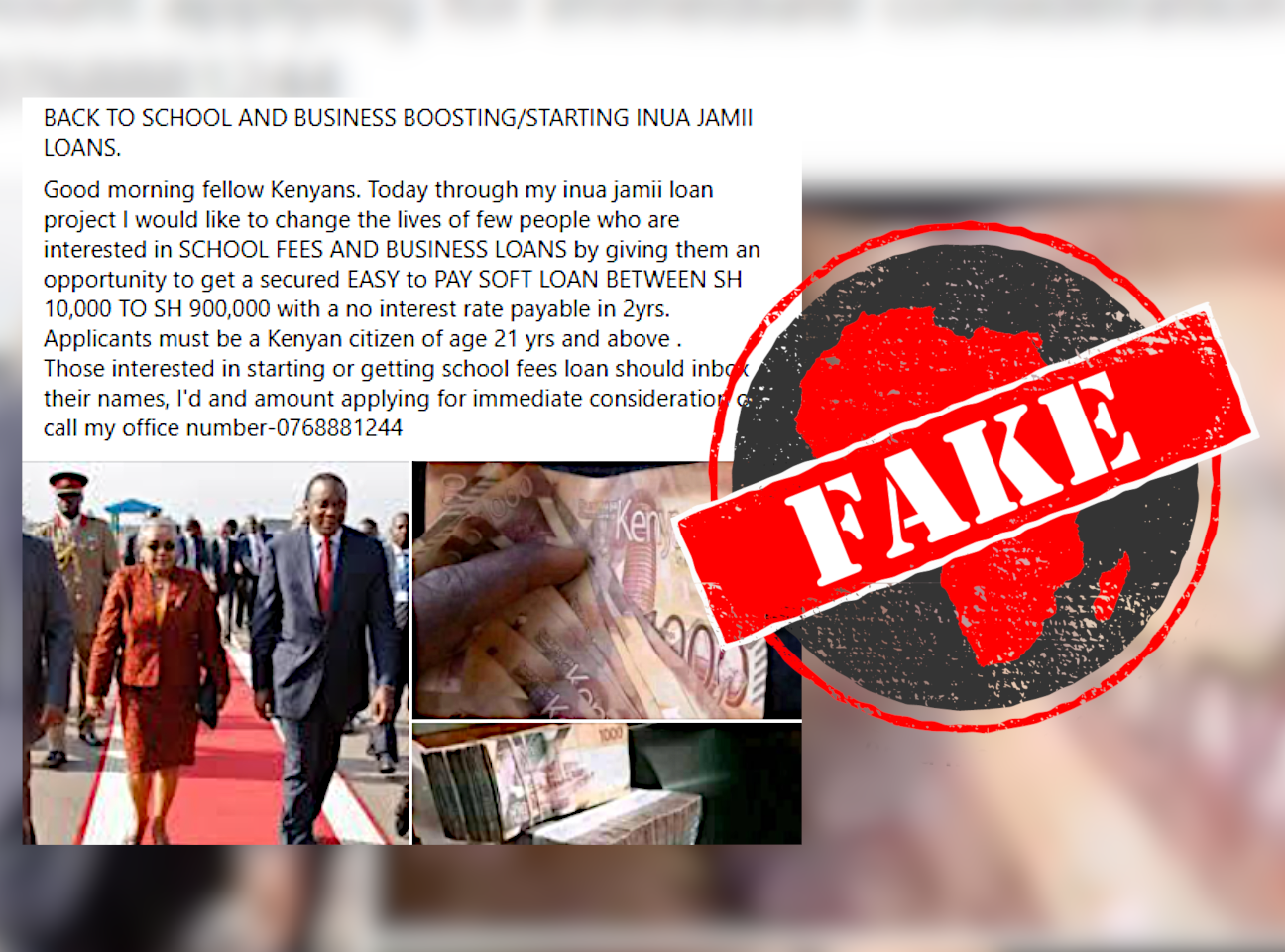The Facebook page “Muigai Kenyatta” claims to be the account of Kenya’s president Uhuru Muigai Kenyatta. It has posted multiple offers of interest-free loans for school fees and “business boosting”.
A recent post says the president can provide “soft” loans of KSh10,000 to KSh900,000 with “no interest rate payable in 2 yrs”.
The post then asks “those interested” to “inbox” their personal details or contact an “office number”.
Previous posts announced beneficiaries of “Inua Jamii” loans and advertised job opportunities. The Inua Jamii programme is a Kenyan government social-safety net initiative to help vulnerable groups.
Is the Kenyan president offering loans directly through Facebook? It seems unlikely, but we checked.

Kenyatta not on social media since 2019
Kenyatta deactivated his social media pages on 22 March 2019. His chief of staff, Nzioka Waita, claimed at the time it was because there had been “unauthorised access” of the president’s accounts. But in November 2020 the president said he quit social media because of the insults on his timeline.
All official communication from the president is usually published through the verified Twitter and Facebook accounts of State House Kenya.
And the Inua Jamii programme is run by government ministries, not by the president or his office.
Previous pages claiming to offer loans through the programme have been quickly labelled “fake”, with the programme cautioning that it “does not offer loans to the public” and asking users not to “send any money to these individuals as they are scamming hard working Kenyans out of their money”.
The “Muigai Kenyatta” page is also an imposter account, and its offers of loans should be ignored.
Republish our content for free
For publishers: what to do if your post is rated false
A fact-checker has rated your Facebook or Instagram post as “false”, “altered”, “partly false” or “missing context”. This could have serious consequences. What do you do?
Click on our guide for the steps you should follow.
Publishers guideAfrica Check teams up with Facebook
Africa Check is a partner in Meta's third-party fact-checking programme to help stop the spread of false information on social media.
The content we rate as “false” will be downgraded on Facebook and Instagram. This means fewer people will see it.
You can also help identify false information on Facebook. This guide explains how.


Add new comment